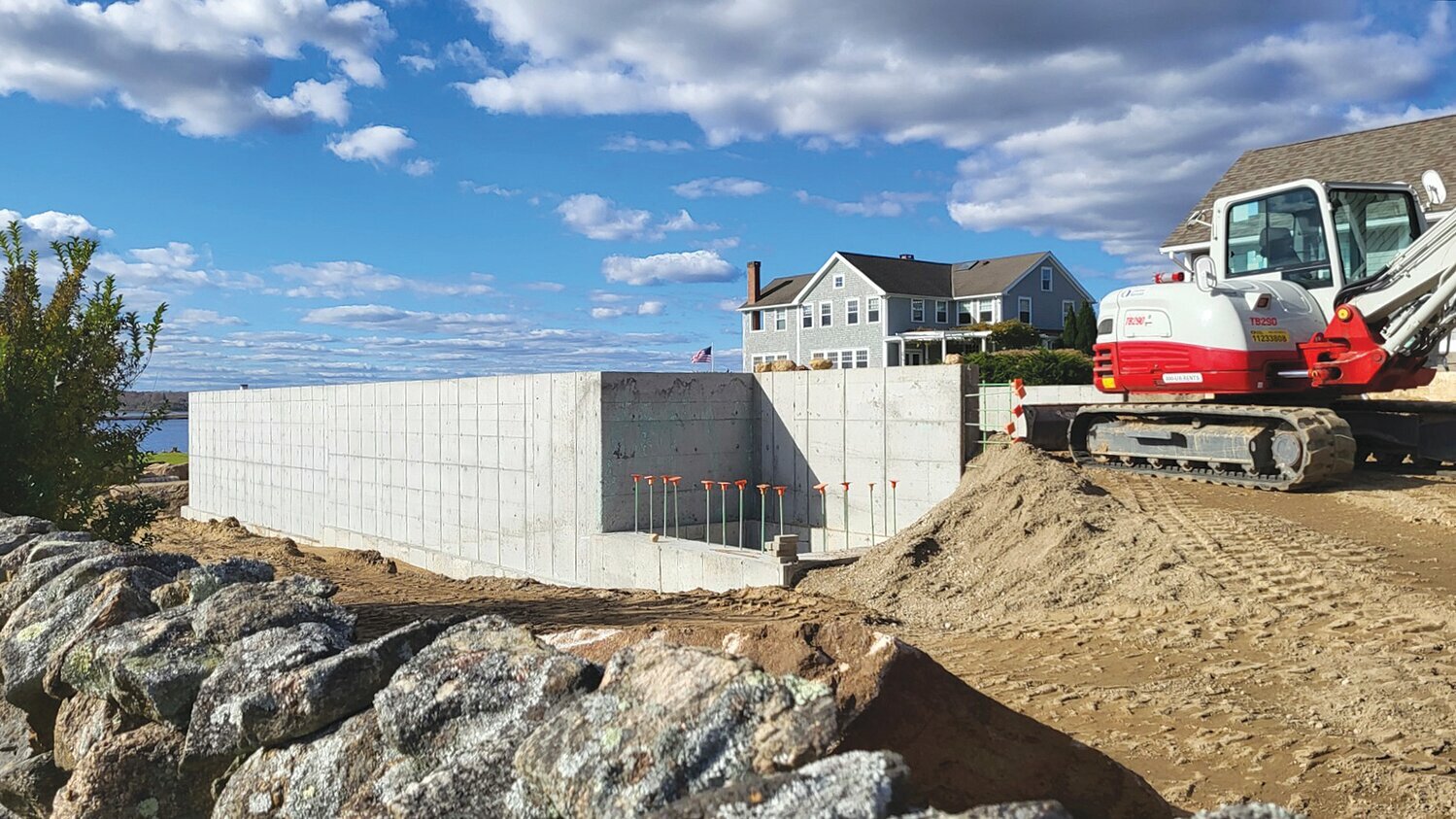Westport Point homeowner sues town's historical commission
Robert Branca claims commission, abutters and town treated him unfairly, ignored law regarding pool project
A Westport Point homeowner accused of building a large pool retaining wall structure without the proper town approvals has filed suit against the Westport Historical Commission, claiming board …
This item is available in full to subscribers.
Please log in to continue |
Register to post eventsIf you'd like to post an event to our calendar, you can create a free account by clicking here. Note that free accounts do not have access to our subscriber-only content. |
Day pass subscribers
Are you a day pass subscriber who needs to log in? Click here to continue.
Westport Point homeowner sues town's historical commission
Robert Branca claims commission, abutters and town treated him unfairly, ignored law regarding pool project
A Westport Point homeowner accused of building a large pool retaining wall structure without the proper town approvals has filed suit against the Westport Historical Commission, claiming board members and neighbors treated him unfairly, ignored and misinterpreted the letter of the law, harassed and conspired against him, and ultimately cost him hundreds of thousands of dollars and lost time in a dispute that goes back to last fall.
Robert Branca, of 2015 Main Road, filed suit in Massachusetts Superior Court on Tuesday, March 26. In a 36-page filing, the attorney and real estate developer who purchased the home two years ago for $3.65 million wrote that he believed he was following both the intent of the town’s laws and historical commission guidelines when he set out early last year to get permits for a pool, spa and series of stolen retaining walls on a large section of lawn overlooking the Westport River’s west branch.
Under historical commission guidelines, district homeowners must receive certificates of either appropriateness, non-applicability or hardship from the commission when building if their project is visible from any road, public way, park or public water body.
In late April through early May, 2023, building commissioner Ralph Souza issued two permits — one for the wall, and one for the pool and spa — and Branca said town documents show that Souza spoke to a commission member who advised him before he issued the permit that the wall would not need a certificate from the commission.
With permits in hand, Branca proceeded over the next several months to hire contractors and begin work on the project.
Later that year, “after sitting back and observing (Branca) incur substantial sums of money,” neighbors started asking questions and complained to the historical commission, claiming the work was improper and indeed needed a certificate. Several also trespassed and sent drones overhead, he said, making claims to workers that a stop work order had been issued when none had, and “took it upon themselves to enforce it.”
Town issues violation order
In mid-November, the commission issued a violation notice, referring to the needed certificates, and ordered Branca before the board in early December.
Meanwhile, “abutters continued their practice of interfering” with the project, and sent the town constable out to “threaten to unlawfully arrest workers” who were working on the pool project, not the wall.
Throughout it all, Branca continued to maintain that the original building permits were valid and had been signed off on by the commission, and questioned the commission’s purview over his project, as walls are exempt and the structure, despite claims to the contrary from abutters, was not visible from any street, public way, public park or the water.
In a series of commission meetings that began in early December, Branca wrote that he continued to try to find a solution and work with the town on the issue, offering to re-design the wall at significant expense, while maintaining that he was within his rights to proceed with permits in hand.
What he got in return, he wrote in the suit, were historical commission members who in public meetings seemed friendly with neighbors and their attorney but hostile to him.
Starting in early December and throughout the proceedings that followed, he wrote that it became abundantly clear that the commission was playing favorites, “thereby essentially (and improperly) abdicating its role and decision-making authority to the abutters and their attorney.”
In December, commission members ruled that Branca would need to file for a certificate of either appropriateness, non-applicability or hardship. He did so on Tuesday, Dec. 19, only to learn one week later that it had been denied. At that point, Branca filed his suit with the Superior Court, though he did not serve the town, hoping instead to work through the issue amicably without going to court.
At a series of meetings from early January through March, the town and Branca were unable to come to a consensus, and though Branca said he proposed a series of changes that he believed would make the wall more palatable, the issues remained. So did the unfair treatment, he wrote.
Branca, the suit contends, “was left to conclude that only a severe destruction of the project and redesign by abutters ... would be considered by the commission.”
At a meeting in early February, the commission denied his request that discussion on the project be continued to a later meeting, denied his application for a certificate, and voted to issue an enforcement order.
“The actions were part and parcel of the commission’s complete abdication of its legitimacy and control of its own purview and process to the subjective and vituperative whims of neighbors.”
Later that month, Branca asked the commission to reconsider its decision to deny a continuance. When the commission reconvened in early March to discuss it, members rejected the request.
Demands
In the suit, Branca calls for the court to issue injunctive relief, and “preliminarily and then permanently enjoin and restrain the commission from preventing or prohibiting work from proceeding” under the two building permits issued last year.






